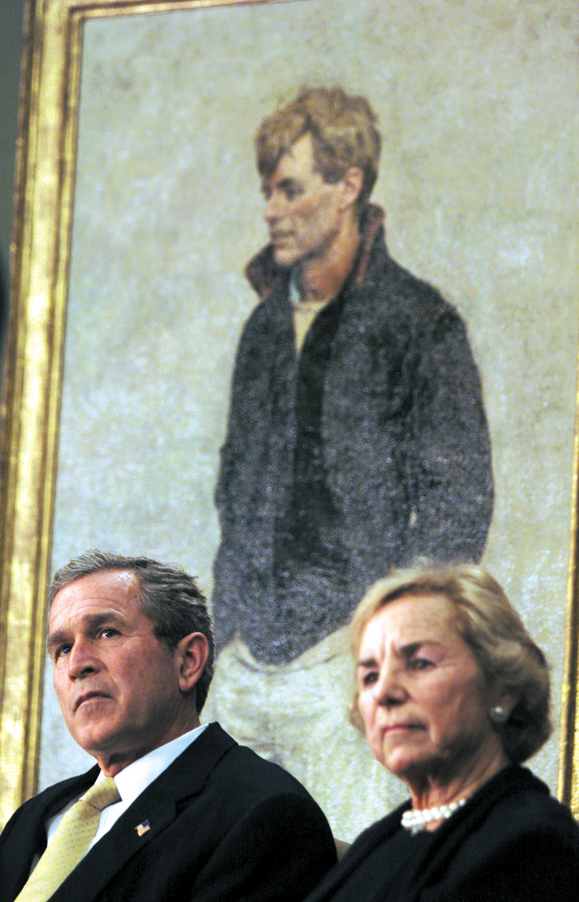On November 20th, President Bush, Ethel Kennedy, the widow of Robert Kennedy, and other members of the Kennedy clan attended a ceremony to rename the Justice Department headquarters after Robert Kennedy. Although somewhat surprising that the Republican Bush administration has chosen to honor a Democrat in this way, the impetus behind the honor came from the President himself, who had to overrule Congressional Republicans opposing the naming of the building.
The symbiotic nature of the relationship between the Kennedys and the Bushes — probably the two most important political dynasties in the United States — is becoming more pronounced even as their politics remain as far apart as ever. Ever the political realist, Senator Edward Kennedy needs the President’s support to get some of his agenda through Congress. At the same time, even if President Bush seems to be prioritizing anti-terrorist measures rather than domestic issues, he will need Senator Kennedy’s support and clout in persuading others to support his education plan.
Politics aside, it remains appropriate that a building which is the headquarters of the Justice Department be named after Robert Kennedy, who served as Attorney General in his brother’s administration. As Attorney General, Robert Kennedy threw his weight behind the Civil Rights Act of 1964 and prosecuted school desegregation cases. According to Senator Christopher Dodd (D-CT), a former Peace Corps volunteer, Kennedy had “that rarest of qualities — a clear-eyed conviction in what he knew to be right. He spoke with a passionate intensity about the issues of the day, whether it was the tragedy of racial hatred or the wretched conditions of the American Indian, the despair of homelessness or the plight of the urban poor. He portrayed an America where justice and fairness always prevailed, and he challenged us to create that place for ourselves.”
This idealism didn’t prevent Kennedy from sometimes falling short of what he strove for, but in an era when reputations often suffer from posthumous revisionist expos?s, his reputation remains as intact as it was when he was assassinated in 1968 after winning the California presidential primary.
One of Kennedy’s most memorable speeches came after the assassination of Martin Luther King Jr. in 1968. Visiting Indianapolis after learning of the death of King, Kennedy decided to proceed with a rally in the heart of the city’s ghetto area. After climbing on to a flatbed truck that was serving as a platform, Kennedy told the crowd: “I have bad news for you, for all our fellow citizens, and people who love peace all over the world, and that is that Martin Luther King was shot and killed tonight.” Kennedy, possibly the only white person in America who could have broken the news of King’s death to the largely black crowd and not have caused a riot, continued: “For those of you who are black and tempted to be filled with hatred and distrust against all white people, I can only say that I felt in my own heart the same kind of feeling. I had a member of my family killed…he was killed by a white man. But we have to make an effort in the United States, we have to make an effort to understand, to look beyond these difficult times.” ♦


Leave a Reply